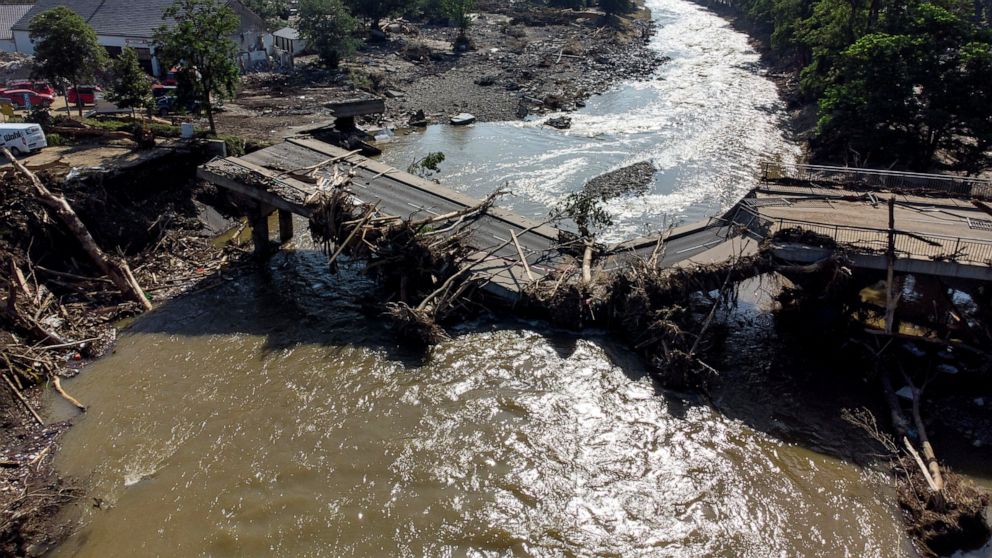Europe flooding toll over 180 as rescuers dig deeper
The death toll from flooding in Western Europe has climbed above 180 after rescue workers dug deeper into debris left by receding waters
BERLIN — The death toll from flooding in Western Europe climbed above 180 on Sunday after rescue workers dug deeper into debris left by receding waters. Heavy rain fueled new floods in southeastern Germany and Austria, though not on the scale of last week’s devastating onslaught.
Police put the toll from the hard-hit Ahrweiler area of western Germany’s Rhineland-Palatinate state at more than 110 and said they feared the number may still rise. In neighboring North Rhine-Westphalia state, Germany’s most populous, 46 people were confirmed dead, including four firefighters. And Belgium has confirmed 27 casualties.
Chancellor Angela Merkel arrived Sunday in Schuld, a village located on a curve of the Ahr river that was devastated by the flooding, to see the damage for herself. Her visit comes after Germany’s president went to the area on Saturday and made clear that it will need long-term support.
Finance Minister Olaf Scholz said he will propose a package of immediate aid at a Cabinet meeting on Wednesday, telling the Bild am Sonntag newspaper that more than 300 million euros ($354 million) will be needed. And he said that officials must start setting up a rebuilding program which, from experience with previous flooding, will be in the billions of euros.
Pope Francis offered a prayer for the flood victims and for support of the “efforts of all to help those who suffered great damage.”
“I express my closeness to the populations of Germany, Belgium and Holland, hit by catastrophic flooding,” he said in his first public appearance to the faithful in St. Peter’s Square after major surgery. “May the Lord welcome the deceased and comfort the family members.”
Officials in the Ahrweiler area asked people not to make any more donations in kind for now. Police said “the overwhelming willingness to help” had left storage facilities for clothes and food full.
Although rain has stopped in the worst-affected areas of Germany, Belgium and the Netherlands, storms and downpours have persisted in other parts of western and central Europe. There was flooding Saturday night in the German-Czech border area, across the country from where last week’s floods hit, and in Germany’s southeastern corner and over the border in Austria.
About 130 people were evacuated from their homes in Germany’s Berchtesgaden area after the Ache River swelled. At least one person was killed. The railway line to Berchtesgaden was closed.
A flash flood swept through the nearby Austrian town of Hallein late Saturday, but there were no reports of casualties. Further west, parts of the town of Kufstein were flooded. Heavy rain and storms caused serious damage in several parts of Austria.
Climate scientists say the link between extreme weather and global warming is unmistakable and the urgency to do something about climate change undeniable.
Scientists can’t yet say for sure whether climate change caused the flooding, but they insist that it certainly exacerbates the extreme weather that has been on show around the world.
—-
Frances D’Emilio in Rome contributed to this report.
![]()


